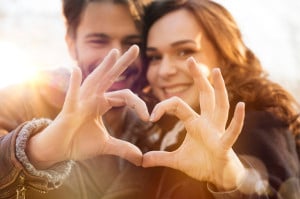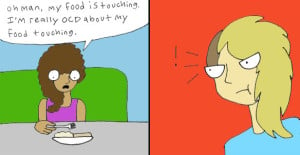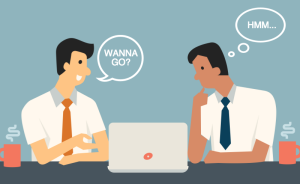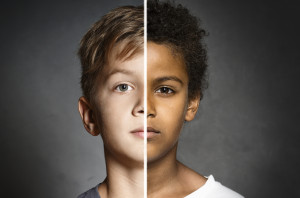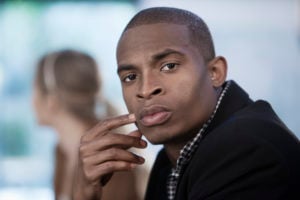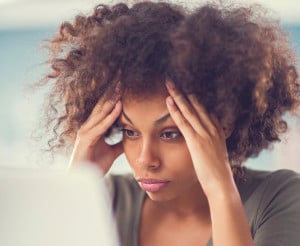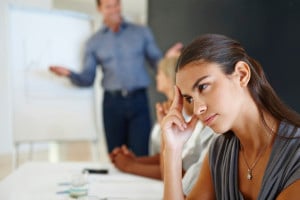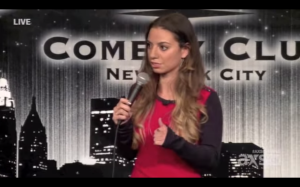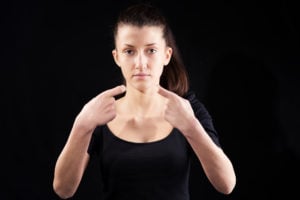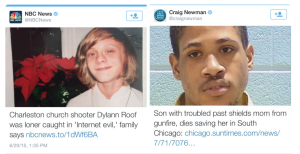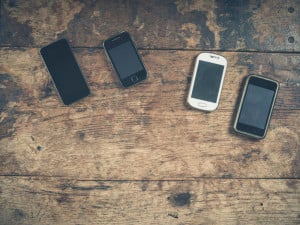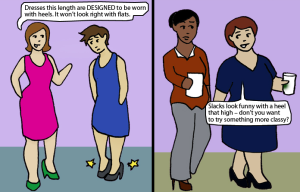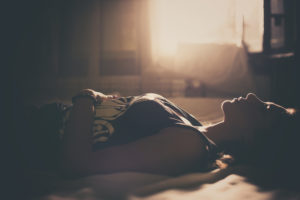
Person in dim lighting lying in bed.
This article was originally published on Medium and republished here with the author’s permission.
Content warning: sexual assault, hate crime.
Everyone knows I’m queer and has known since I was in middle school. I’m an activist, so I’ve heard every homophobic comment out there. Almost none of them faze me.
Being queer is a sin? Not in my belief system. Being queer just means I wasn’t loved enough as a child? Wrong. Being queer means I’ve just been brainwashed by my liberal surroundings? Okay, I grew up in San Francisco and went to my first pride parade when I was a toddler so may you have a point, but still…
Yet one comment has always gotten to me: being sexually assaulted is what makes people queer.
I first heard that comment in 8th grade in the midst of starting a middle school Gay-Straight Alliance. I tried to laugh it off. It was ridiculous, right? However, I discovered I couldn’t stop thinking about it. At the time, I chalked the wave of nausea I felt up to anger. But homophobic comments never made me nauseous, not like that.
It was only later I realized the comment bothered me because I couldn’t say with conviction it was wrong.
Confession Number One
My first rape preceded my interest in romantic relationships or thoughts about my sexual orientation. It was my first sexual experience and was, despite the many ways my body reacted, tremendously negative and painful.
For a while afterwards, I found even kissing repulsive, and worked tirelessly to distract our sex ed class from talking about actual sex because I associated sex with fear (much to the dismay of our sex ed teacher, who grew tired of answering questions like, “Isn’t the male reproductive system inefficient?”).
Even though what happened to me was unquestionably rape, it just didn’t occur to me to attach that word to it until long after it happened. Rape was sex, and sex was painful.
As I began to realize I was attracted to other girls in 7th grade, I was able — unconsciously — to compartmentalize my rape and my sexual orientation. I wanted to kiss a girl in a way I’d never been able to imagine wanting to kiss a guy. The idea of intimacy was exciting instead of nausea-inducing. I eventually embraced my identity and soon came out very publicly, courtesy of getting too amped up and personal in an online debate over same-sex marriage.
So, encountering the idea that one of the core parts of my identity stemmed from one of the most painful moments of my life? Terrifying.
And even though every activist part of me knew it was my job to assert to anyone who asked that rape and molestation don’t impact sexual orientation, my stomach kept tensing because I was saying something I didn’t know was true for me. I had no evidence my rape didn’t have an impact on my sexuality. I could speak with conviction, but not sincerity.
What complicated matters, even more, was how I was unable to talk about this fear openly. Doing so could jeopardize my legitimacy as an activist. I still fear that now, I’ll lose my “right” to call myself queer or see this quoted on hate group websites as evidence that queerness is a sickness, unnatural, or can be cured.
Confession Number Two
I wrote an anonymous version of this piece a couple years ago — before I went to Columbia University and was raped twice more.
After the first of my Columbia rapes, it was hard not to lie there on my bed and question if being openly queer impacted my rapist’s decision to rape me. How could I not question that?
What were the chances such a statistically improbable type of assault — a stranger assault at night — would randomly happen to someone who shoved queer rights down people’s throats?
He didn’t say anything that I heard, so I had no idea what he was thinking, but all the homophobic words he could’ve been thinking in that silence haunted me as I showered, washed my sheets, tried to get assignment extensions, and woke up crying from nightmare after nightmare.
It was only after I was assaulted again a few months later, presumably by the same person, that I learned I was, in fact, targeted.
When you hear about “corrective rape,” or rape targeting queer and trans people with the intention of changing their sexual orientations or gender identities, your mind probably jumps to thinking about countries besides the United States — South Africa, for example, where corrective rape against lesbian women, in particular, is a much-discussed epidemic.
You don’t think about corrective rape happening at an Ivy League school. So, in the aftermath of my second Columbia assault, I insisted that, like with my first Columbia assault, my rapist didn’t say anything.
That’s not true.
Still a dyke?
Three words, yet carrying the weight of thousands. Three words that made things more confusing. There I was wondering if rape made me queer, and there was someone raping me to try to make me straight.
In the days after, I listened to people tell me about all the things I could’ve done differently to prevent my assault:
Why didn’t you move?
Why weren’t you carrying pepper spray?
Why didn’t you report him after the first time?
But no one knew to ask the question I kept asking myself: Why did you come out?
I knew from my first two assaults there are a thousand things one can blame themselves for; I never expected my identity to be one of them.
But despite my rapist’s best efforts, I’m still queer. I don’t know if I should interpret this as foolproof evidence rape doesn’t influence sexual orientation or more evidence rape might lead to queerness.
Honestly, this piece isn’t going to come to a beautiful conclusion where I announce the part of my brain that holds doubts about the origin of my sexual orientation has finally learned my sexual orientation has always been separate from the rapes that have overtaken so much of my life.
To be honest, I don’t know if I’ll ever be able to reach that conclusion completely. I’ll never know what it’s like to be intimate with someone without having memories of rape somewhere in the back of my mind, or what I’d be like today if I hadn’t been raped.
So what is this piece about? Why have I done that whole jeopardizing-my-legitimacy-as-an-activist thing if this doesn’t have a pretty ending?
This is about coming to terms with all the uncertainty: the doubt, the fear, the shame.
I’ll never know for sure if my rapes had an impact on my sexual orientation. What I do know for sure now is for whatever reason, I love girls, and that isn’t going to change. And one day, when I find an amazing partner, the source of my sexual orientation won’t matter to me — and hopefully not to her — one bit.
To those whose takeaway from this is that sexual orientation is a choice:
Re-read this, because that is not the conclusion.
One of the greatest problems with rape is it forces you to question everything, from your culpability to your identity; just like my feelings of self-blame don’t mean I’m actually responsible for my rapes, my feelings of uncertainty about the origins of my sexual orientation don’t mean I was born straight.
[do_widget id=’text-101′]
Amelia Roskin-Frazee is the Founder & President of The Make It Safe Project and serves on the National Advisory Council for GLSEN. She is currently an undergraduate student at Columbia University where she is an organizer with No Red Tape Columbia.
Search our 3000+ articles!
Read our articles about:
Our online racial justice training
Used by hundreds of universities, non-profits, and businesses.
Click to learn more
Most Read Articles
- « Previous
- 1
- …
- 30
- 31
- 32





